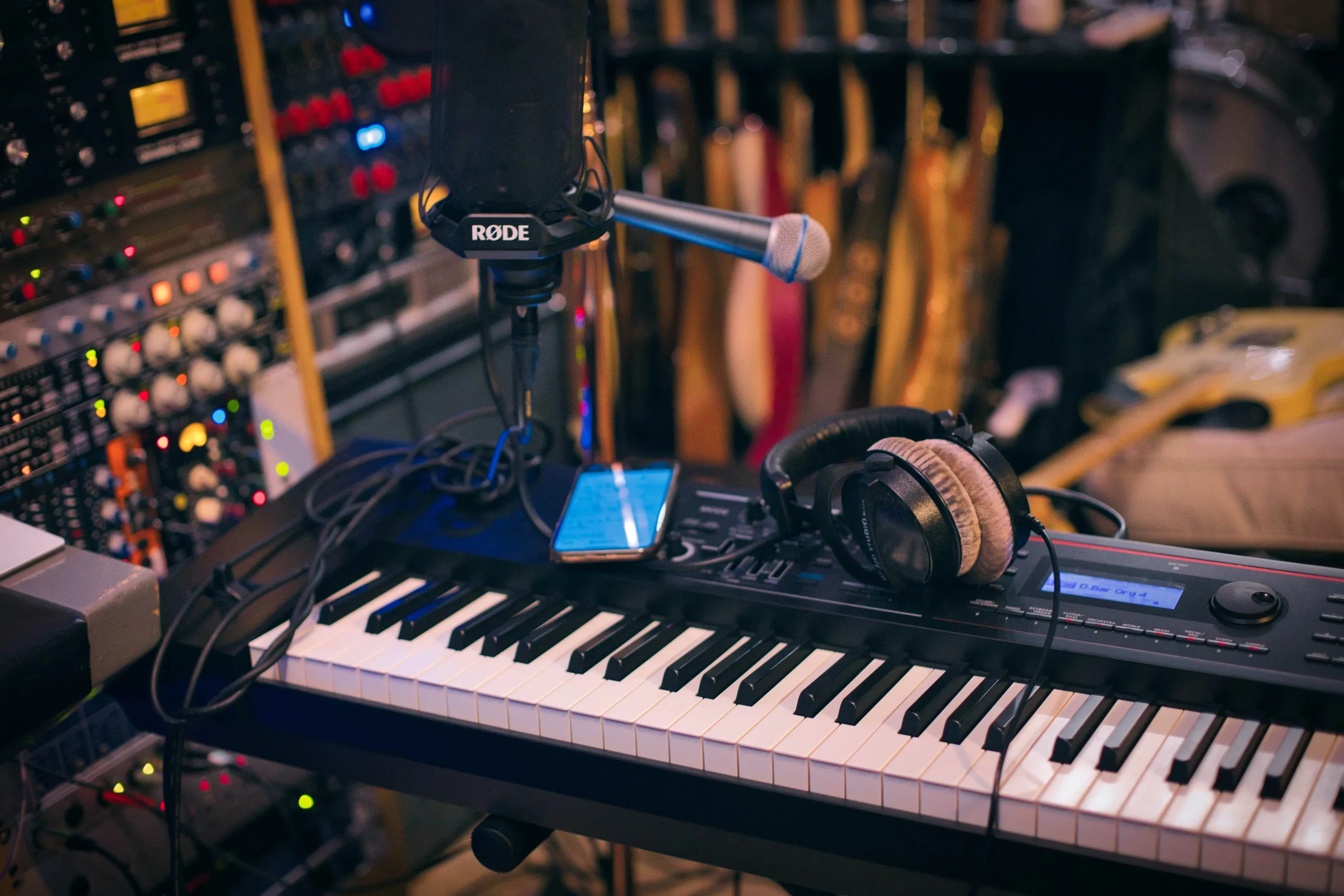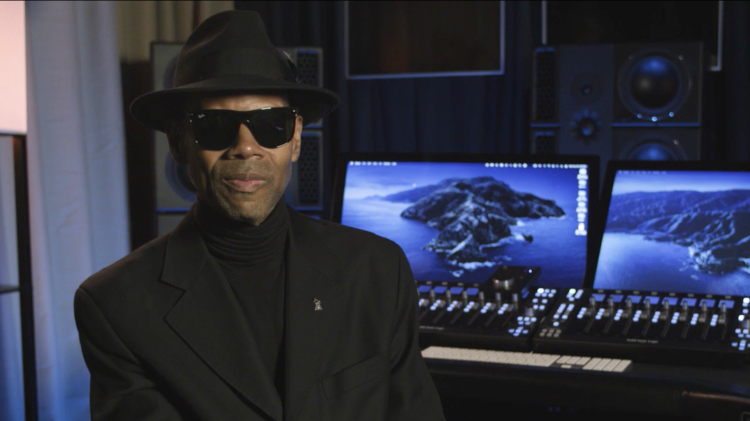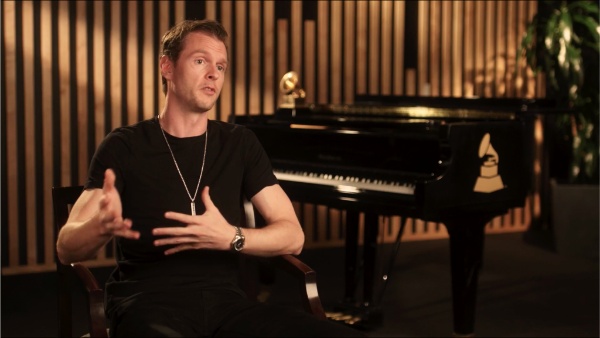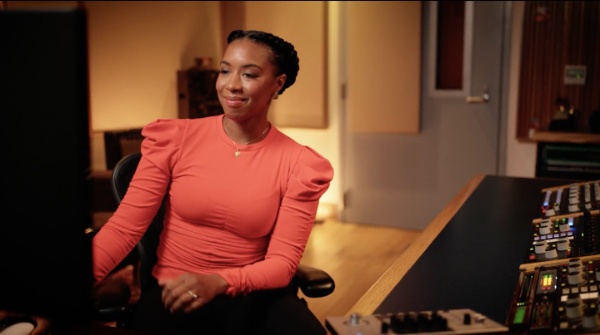Begin your journey of sound exploration with our in-depth guide to the music production process. Tailored for novices embarking on their first project and seasoned producers seeking to refine their sound, this article illuminates the key elements of music production. Engage with the various techniques, the essential music production equipment, and industry insights that shape the rhythm and melody of songs.
Discover GRAMMY GO courses exclusively on Coursera
Your First Step into Music Production: A Beginner’s Roadmap
Wondering how to start in music production? The commencement of your musical adventure requires a strategic approach. First, crystallize your musical objectives. Whether it’s crafting infectious electronic beats or rich acoustic melodies, your artistic intent will guide your music production journey. Acquaint yourself with the music production process, which is fundamental for any aspiring music producer. A modest, acoustically treated space and a capable computer are your primary needs for a home studio setup. For further understanding of a music producer’s role and how to bring life to your tracks, GRAMMY GO provides essential insights into the various facets of music production and the responsibilities that come with it.
The Stages of Music Production: From Concept to Completion
Navigating through the music production stages is vital for crafting a polished final product:
- Pre-production: This preparatory stage is where a song’s blueprint is created. As a music producer, you will refine the songwriting, work on arrangements, and plan the recording session.
- Recording: This stage, also known as ‘tracking,’ is where the artist’s performance is captured. It’s essential to employ the right recording techniques to ensure high-quality sound. Resources like Sound on Sound are excellent for sound engineers and music producers looking to deepen their knowledge of recording strategies.
- Editing: This is a meticulous phase where you ensure that the tracks are rhythmically tight and in pitch, setting a solid foundation for the mixing stage.
- Mixing: Here, you blend the individual tracks, balancing levels, applying stereo panning, and adding effects to create a cohesive and sonically pleasing mix.
- Mastering: The final step in the music production process, mastering is about making your music sound its best across all playback systems, achieving both loudness and dynamic range for optimal listening.
Assembling Your Toolkit: Equipment Essentials for Music Production
Selecting the right music production equipment is crucial. Your production toolkit should include a computer to run your Digital Audio Workstation (DAW) and plugins efficiently. The choice of DAW, be it Ableton Live, FL Studio, or Logic Pro, is instrumental in your workflow as a music producer. An audio interface is essential, serving as the conduit between your analog inputs and digital outputs. Quality microphones are paramount for capturing everything from nuanced vocal performances to the dynamic range of acoustic instruments. Lastly, reliable studio headphones and monitors are indispensable for critical listening during the mixing and mastering stages. For those looking for a comprehensive breakdown of software tools, GRAMMY GO’s Guide to Free & Paid Music Production Software & Apps offers a detailed look at the options available to modern producers.
The Art of Recording and Sound Design in Music Production
Capturing pristine audio is the cornerstone of professional music production. To achieve this, you’ll need to master recording techniques, understanding how microphone choice and placement affect sound. In your home recording studio, consider the acoustics—use soundproofing materials to control reflections and isolate your recording space.
Sound design takes your music production beyond mere recording, allowing you to mold audio elements with texture and color. Use synthesizers, samplers, and effects processors within your DAW to construct unique sounds that define your musical signature. Explore online resources like Sound Design Central for tips on creating and manipulating sounds that can set your productions apart.
Mixing and Mastering: Music Production’s Final Touches
The mixing stage is where your music comes together. Balance track levels, EQ frequencies for clarity, and apply panning to place each sound within the stereo field. Strategic use of effects like reverb and delay can add depth and space to your mix. For comprehensive mixing techniques, check out The Pro Audio Files, which offers tutorials and courses on advanced mixing strategies.
Mastering is the final phase of music production, ensuring your music is consistent and competitive in the market. It involves critical listening and subtle adjustments to EQ, compression, and limiting to ensure your track translates well across all devices—from headphones to club sound systems.
Innovations Shaping Music Production Trends
As music production technology advances, staying updated on emerging trends is crucial. From AI-powered music composition tools to cutting-edge virtual instruments, producers must adapt to maintain relevance. Keep an eye on platforms like Music Ally, which reports on the latest tech shaping the music production industry.
Immersive audio formats, such as Dolby Atmos, are revolutionizing how listeners experience music, offering three-dimensional soundscapes. Producers can learn about creating for these formats through Dolby’s own resources or by engaging with communities on forums like Gearspace, which discuss the application of these technologies in music production.
Demystifying the Music Industry: Navigating Production Careers
Understanding the business aspects of music production is crucial for anyone looking to make a career in this field. It’s not just about creating music; it’s also about understanding how that music can generate income, how to protect your intellectual property, and how to effectively market your work.
Networking within the industry is vital. Attend music conferences, join production forums, and connect with other professionals on platforms like LinkedIn. Furthermore, maintaining a strong online presence can be an effective marketing tool, whether through social media or by building a professional website to showcase your portfolio.
Photo by Caught In Joy on Unsplash




















